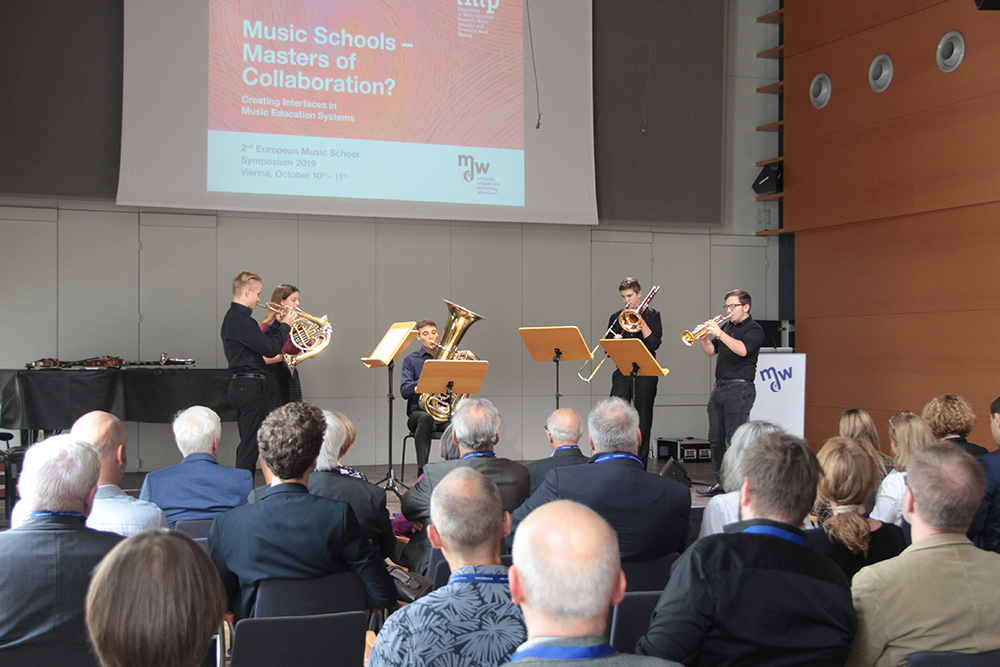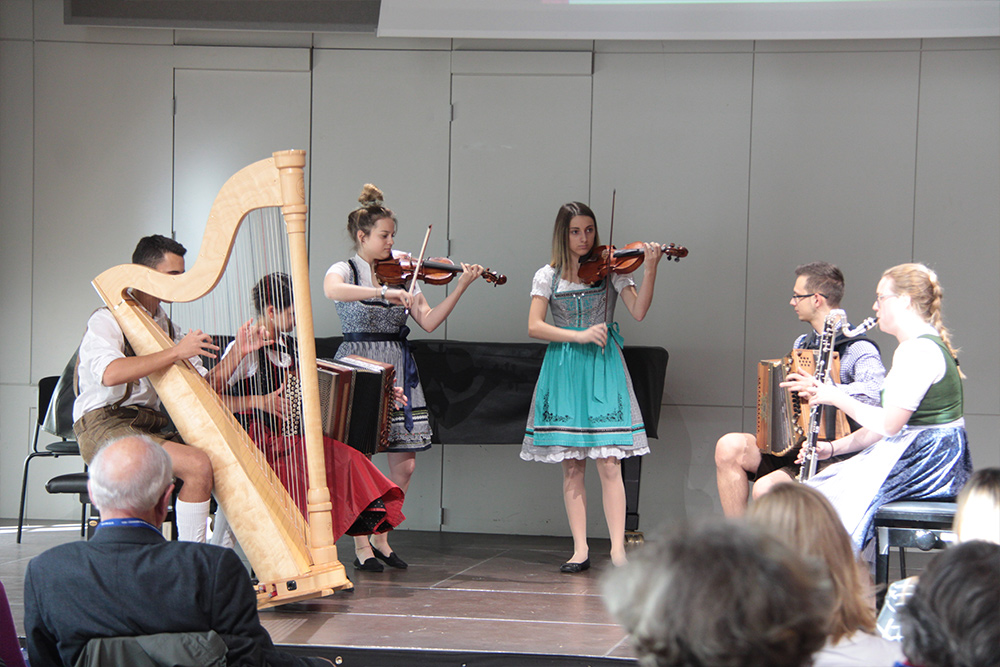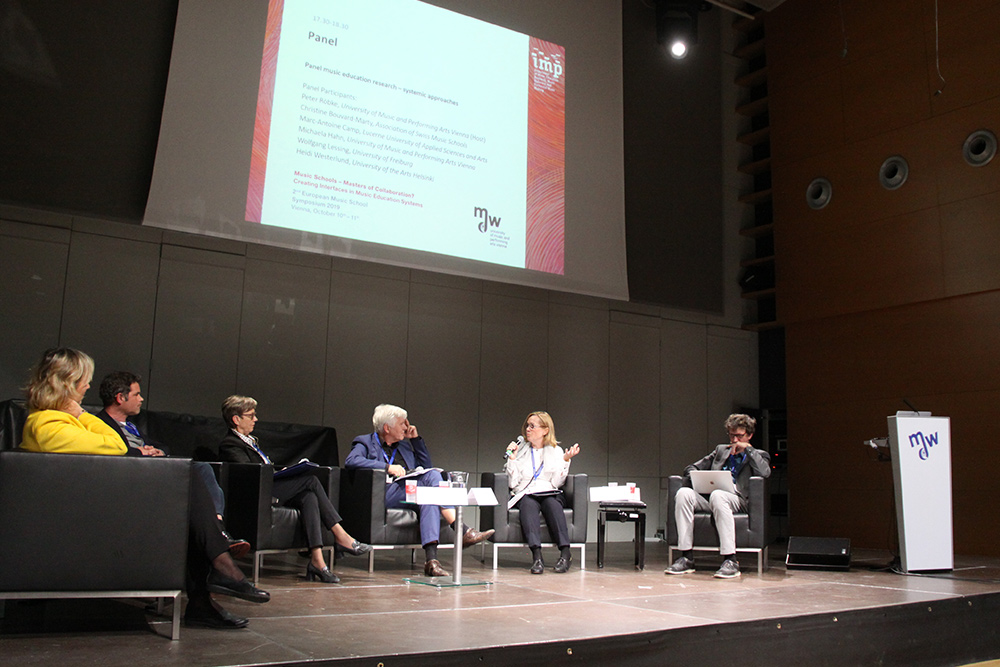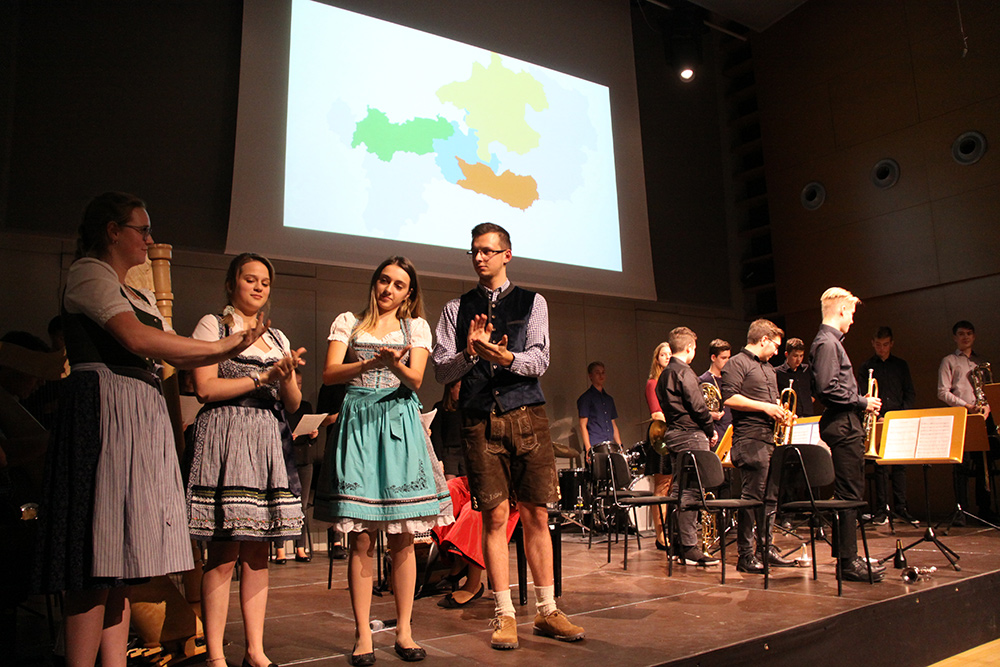The Second European Music School Symposium, held from 10 to 11 October, dealt with the topic of collaboration in an exhaustive manner; this involved the presentation of research findings from all across Europe alongside panel discussions and keynotes featuring renowned experts from 25 European countries. A total of 32 presentations featured numerous approaches and diverse perspectives concerned with making possible comprehensive and broad music education that reaches beyond institutional boundaries.
Comprehensive music education requires individual forms of teaching and learning in various subdisciplines, diverse music teaching formats and experiences, and also various institutional options. And collaboration between institutions is necessary in order to enable every child and adolescent to attain his or her personal musical goal.

The challenges involved in facilitating diverse approaches to music education as well as the attendant cultural participation for the greatest possible number of children and adolescents were shown in a clear way by many of the presentations. The research-based contributions presented the attendant challenges in terms of music educators’ occupational profiles, interactions with communities of practice, and—perhaps most importantly—the role of students both in teaching situations and outside of institutional education. And in keeping with the stated theme of Interfaces, these contributions also devoted special attention to the interfaces between schools of general education and music schools in various countries including Ireland, Austria, France, and other European states.

The special position of music schools, as organisations that have to engage in constant collaboration with other institutions in order to fulfil their role in today’s society, was examined in a nuanced fashion. Alongside the examination of numerous innovative and creative approaches in this regard that have been developed at music schools, a constant theme was also music schools’ social responsibility. And here, the outcomes and analyses produced by model projects such as Floora and Songlab in Finland, AÏCO in France, and L’Hospitalet in Spain were of particular interest.

Over 140 researchers and experts took part in this symposium, which took place from 10 to 11 October 2019 at the mdw. And with its internationally renowned speakers, the list of whom included Peter Renshaw, Heidi Westerlund, Stefan Gies, and many others, it took yet another step toward enriching the broad topic of music education while also offering numerous innovative impulses for Austria’s educational landscape. Just like in this symposium’s first edition, special attention was once again paid to the connection between research and practice. And once again, the European Music School Union figured centrally into realising the symposium. This was exemplified by its board members’ participation as chairs, by several joint presentations involving researchers and experts on music schools, and above all by the make-up of this symposium’s participants, who represented a balanced mix between researchers and practitioners. And the KOMU (Conference of Austrian Music School Associations), for its part, provided the evening concert featuring 26 young music students from all of Austria’s provinces just like it had at the first symposium. The audience responded enthusiastically to these students, who had developed and programmed their own concert format—the motto of which was “Collaborations”—as part of a summer camp at the mdw.

It was two years ago and at the initiative of the mdw that this symposium first took place; its second edition was once again realised here, this time as part of the research platform Interfaces | Musikschulforschung [Music School Research] at the Department of Music Education Research, Music Didactics and Elementary Music Education. And in the process, this format has succeeded in bringing additional focus and differentiation to the European exchange on the diversity of systems of music education.
Cooperating partners: European Music School Union (EMU), Conference of Austrian Music School Associations (KOMU)
Information:
